The blackcurrant is the small, round, dark-color fruit that resembles a berry, except it is smoother and perfectly round. The taste is mild, earthy, and a mix of acidic and sweet at the same time. We consume the blackcurrants for the health benefits they offer, like getting enough vitamins, and slowing down the process of aging. They are also beneficial in guinea pigs.
Guinea pigs can eat blackcurrants. This fruit is packed with many vitamins and minerals. The blackcurrant has a lot of vitamin C, and this vitamin is the only one that guinea pigs cannot live without. All of its nutrients make it a good addition to the guinea pig’s diet.
Table of Content
Are Blackcurrants Healthy for Guinea Pigs? | Health Benefits
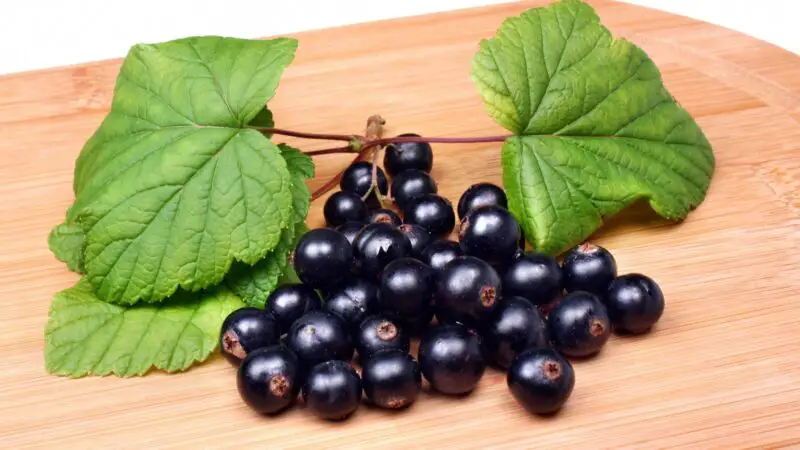
The blackcurrants are rich in vitamin C. They’ll have stronger overall immunity, which means they won’t get scurvy. The scurvy disease is a result of vitamin C deficiency in guinea pigs. It manifests with a rough coat, diarrhea, loss of appetite, weight loss, discharge, internal bleeding, fatigue, or even small wounds that won’t heal.
Blackcurrants have a lot of vitamin A and manganese. Both of these are strong antioxidants. Antioxidants are nutrients that are crucial for the health and survival of humans and animals. They protect the immune system from dangerous free radicals. The free radicals are the main cause of all chronic illnesses and various health problems.
Blackcurrants have pantothenic acid, copper, and iron which strengthens the blood. The pantothenic acid makes new blood cells, the copper creates the red blood cells, and the iron is found in those red blood cells, which prevents guinea pigs from fatigue and anemia.
Nutrition Facts of Blackcurrants
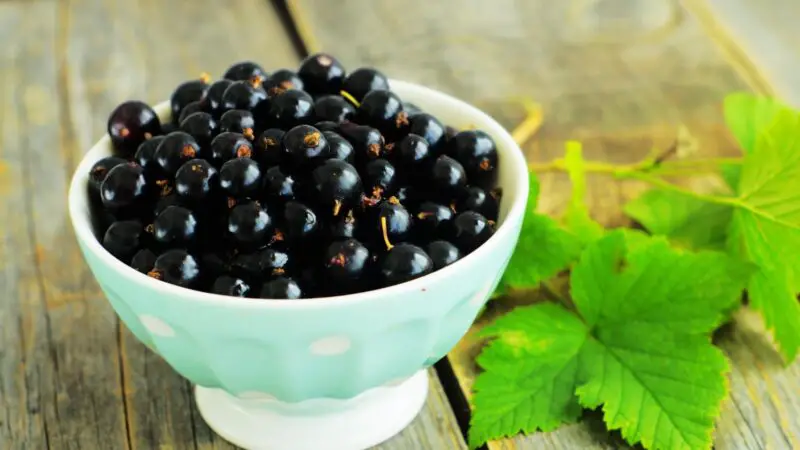
For 100 g (3 oz) of blackcurrants, these are the nutrients:
- Low in calories – 63
- High in carbs – 15.4g
- Fat – 0.4g
- Vitamin A – 5%
- Vitamin C – 302%
- Thiamin – 3%
- Vitamin E – 5%
- Riboflavin – 3%
- Niacin – 1%
- Vitamin B6 – 3%
- Pantothenic acid – 4%
- Calcium – 55mg
- Iron – 1.5mg
- Magnesium – 6%
- Phosphorus – 6%
- Potassium – 9%
- Zinc – 2%
- Copper – 4%
- Manganese – 13%
Are Blackcurrants Bad for Guinea Pigs? | Possible Risks
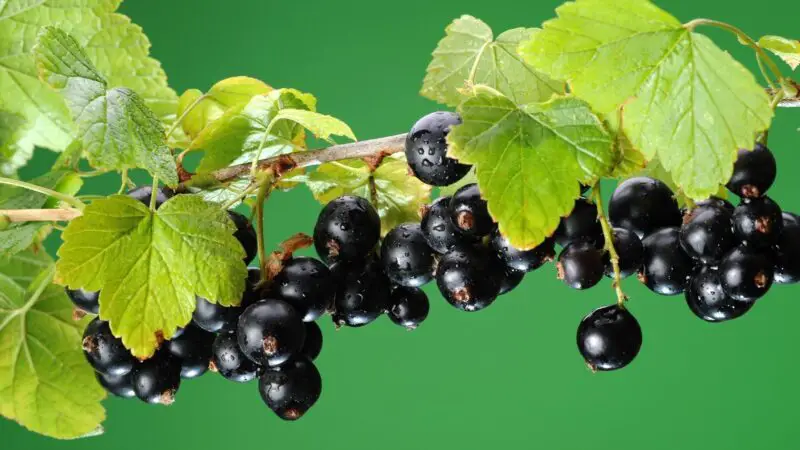
- Urinary problems – The blackcurrants have a lot of calcium and phosphorus. Once the guinea pigs are fully grown, calcium and phosphorus will only harm their urinary systems. The calcium binds with the phosphorus, and both of these can pile up as excess in the urinary system of cavies. When that happens, the poor little guinea pigs are at risk of kidney stones, bladder stones, painful and frequent urination, blood in the urine, and even urinary infections.
- Digestive problems – The blackcurrants have natural sugars, and they are acidic too. Guinea pigs will have painful or unpleasant digestion if they consume too many blackcurrants. The combination of acidity and sweetness could cause some cramps in their bellies or even diarrhea.
Serving Size, Frequency, and Preparation of Blackcurrants for Guinea Pig
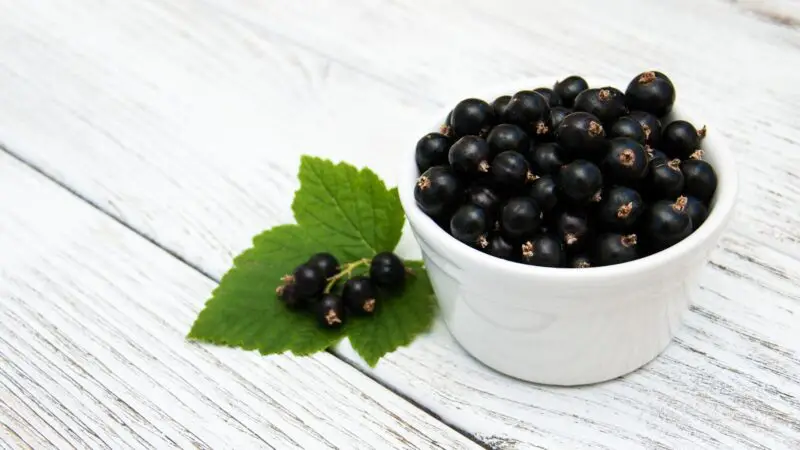
The blackcurrants are refreshing and delicious to the guinea pig, but you have to set some limits to how often or how much you give them to your lovely cavy. It is much better to avoid risks than simply risk the health of the guinea pig just because this fruit is so tasty.
The best serving size would be just a few blackcurrants. And as far as the frequency goes, most guinea pig owners say that they give blackcurrants to their guinea pigs 2-3 times per week, but it is much safer to follow the golden rule of only once-weekly.
The preparation is simple. Just rinse the blackcurrants with water several times, separate the leaves and stems from the fruit, and serve this delicious treat to your beloved guinea pig!
More Information About Blackcurrants and Guinea Pigs
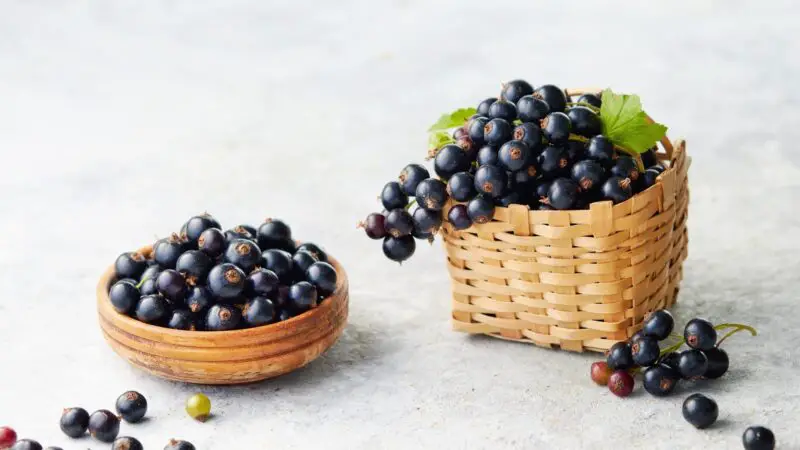
Can the Guinea Pigs Consume Other Types of Blackcurrants?
The blackcurrants come in other colors too, such as white, red, and pink. The taste of all types is similar. Guinea pigs can also eat these types of blackcurrants.
The whitecurrants are basically just an ‘albino’ version of blackcurrant and redcurrant, and this white type is the sweetest of them all. The pink ones are also very sweet, but they lack the most nutrients. So, if you have all types at home, stick with blackcurrant because it is the least sweet.
Can the Guinea Pigs Eat the Leaves of Blackcurrants?
The leaves of blackcurrants are good for the guinea pig. However, it should be planted in your own garden/yard, and you never use chemicals for spraying. Otherwise, the leaves are not safe for the cavy.
Quick Facts on Blackcurrants
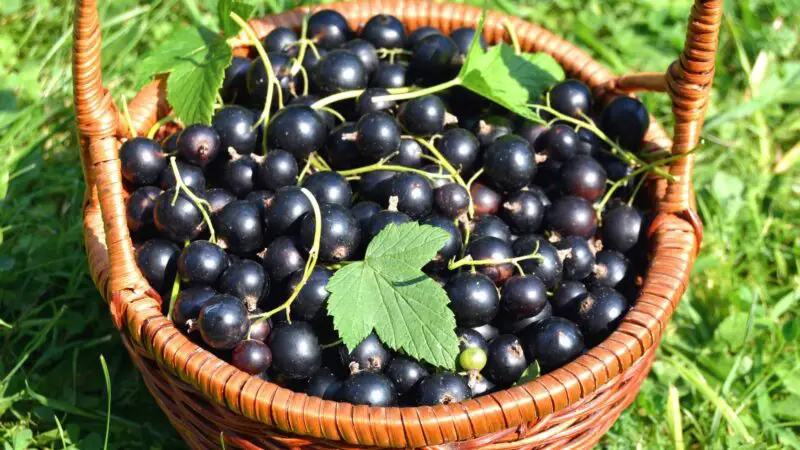
- The blackcurrant has a bushy plant with many stems, and it can reach a height of 6 feet.
- The leaves of this plant have a sweet taste and pleasant aroma.
- The bush of blackcurrant also has flowers in the color blue-pink.
- The blackcurrant berries contain a dozen seeds inside, but they are edible, chewy, and soft.
- There are also pink currants, but they have the least nutrients of all currant types.
- Birds in the wild depend mostly on blackcurrants!
- This fruit is native to the regions of North Asia, and Europe.
- In Europe, the blackcurrant became popular in the 17th century.
- In the 1900s, blackcurrants were ‘banned’ in the USA because this plant had fungi which spread to pine trees and destroyed them!
- This fruit has a nickname too. It is ‘quinsy berry,’ which came from the usage of curing tonsils inflammation. This health condition was called ‘quinsy.’
- Vodka is often sweetened with blackcurrants. It is infused with the blackcurrant leaves for the specific earthy aroma.
- In the cosmetic industry, blackcurrant oil is used for skin care.
- Blackcurrants have more vitamin C than oranges!
We have also made a full list of foods that guinea pigs can and can’t eat (150+ Types of Foods). Be sure to also check our recommended products page for everything you will ever need to assure a happy life for your guinea pigs. Hope this information was helpful and you have found the answer you were looking for.
List of Sources
Nutrient Requirements of Laboratory Animals: Fourth Revised Edition
The Effects of Diet on Anatomy, Physiology and Health in the Guinea Pig
